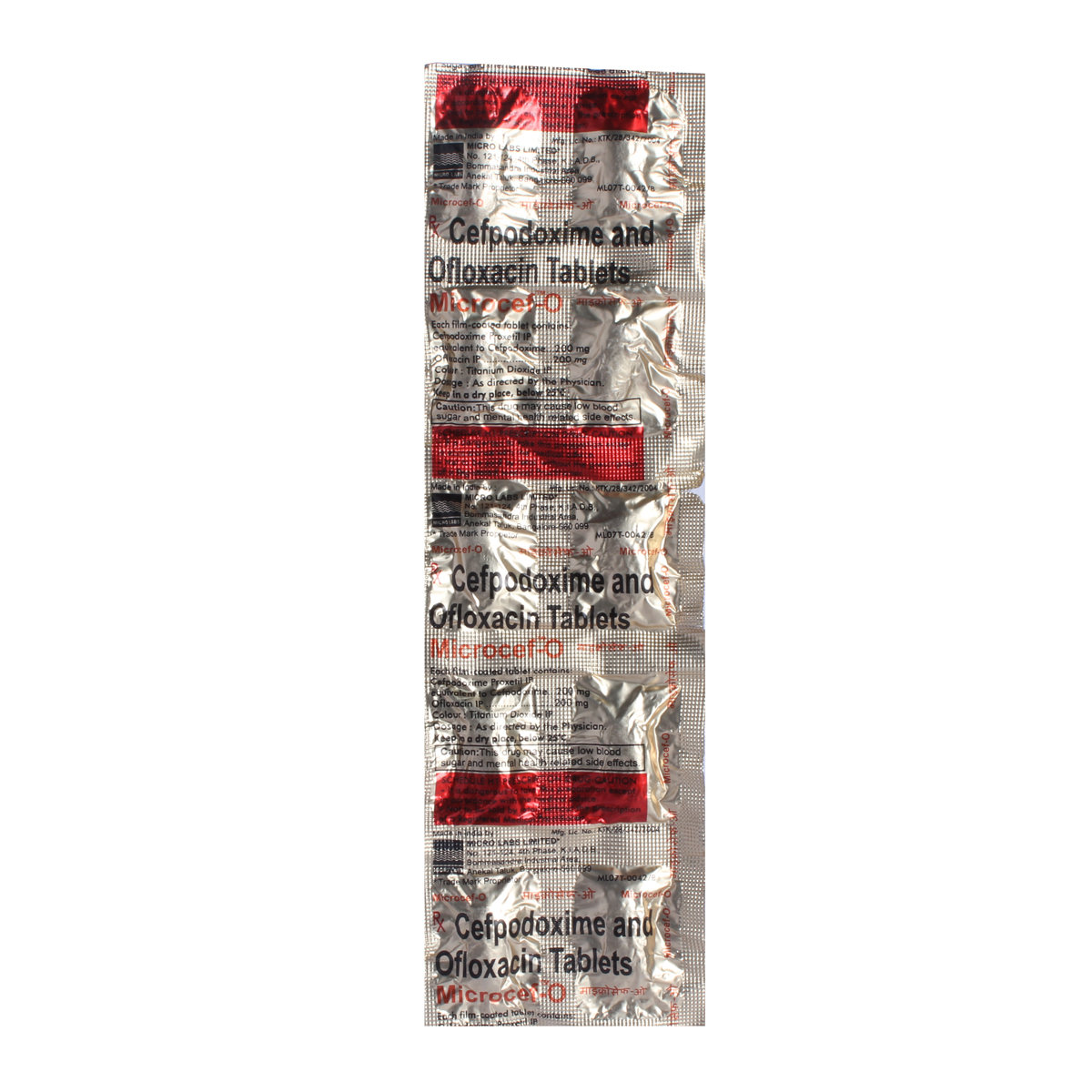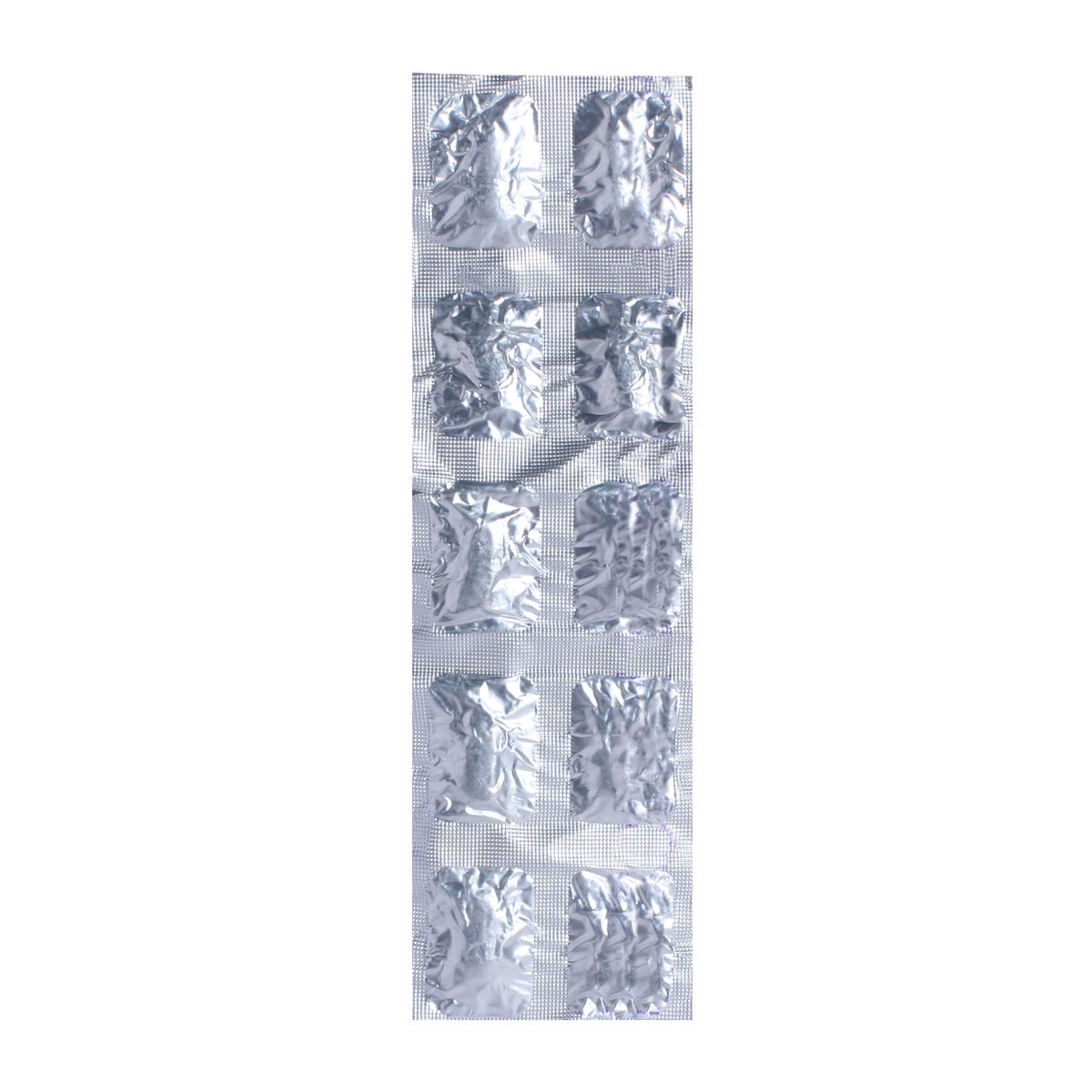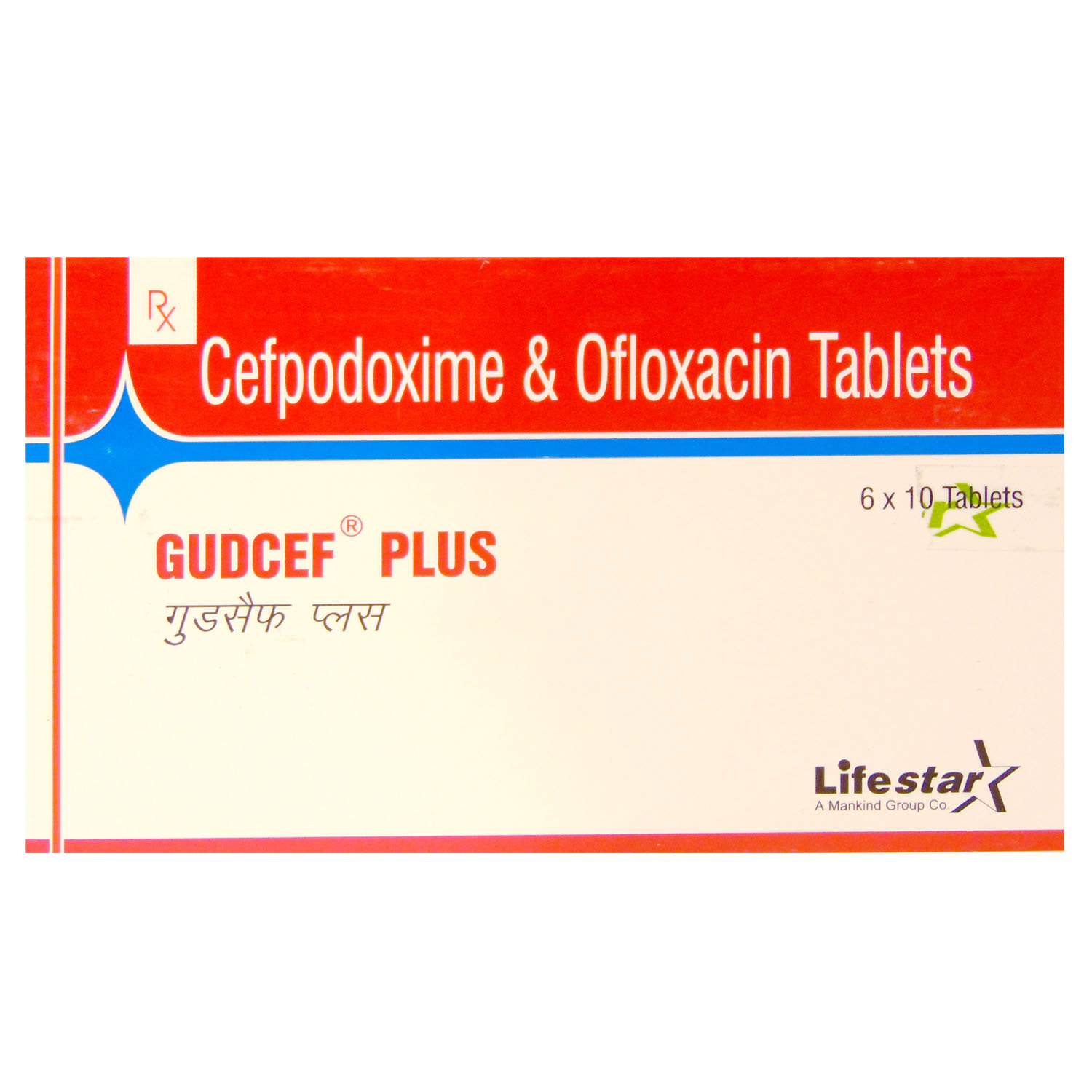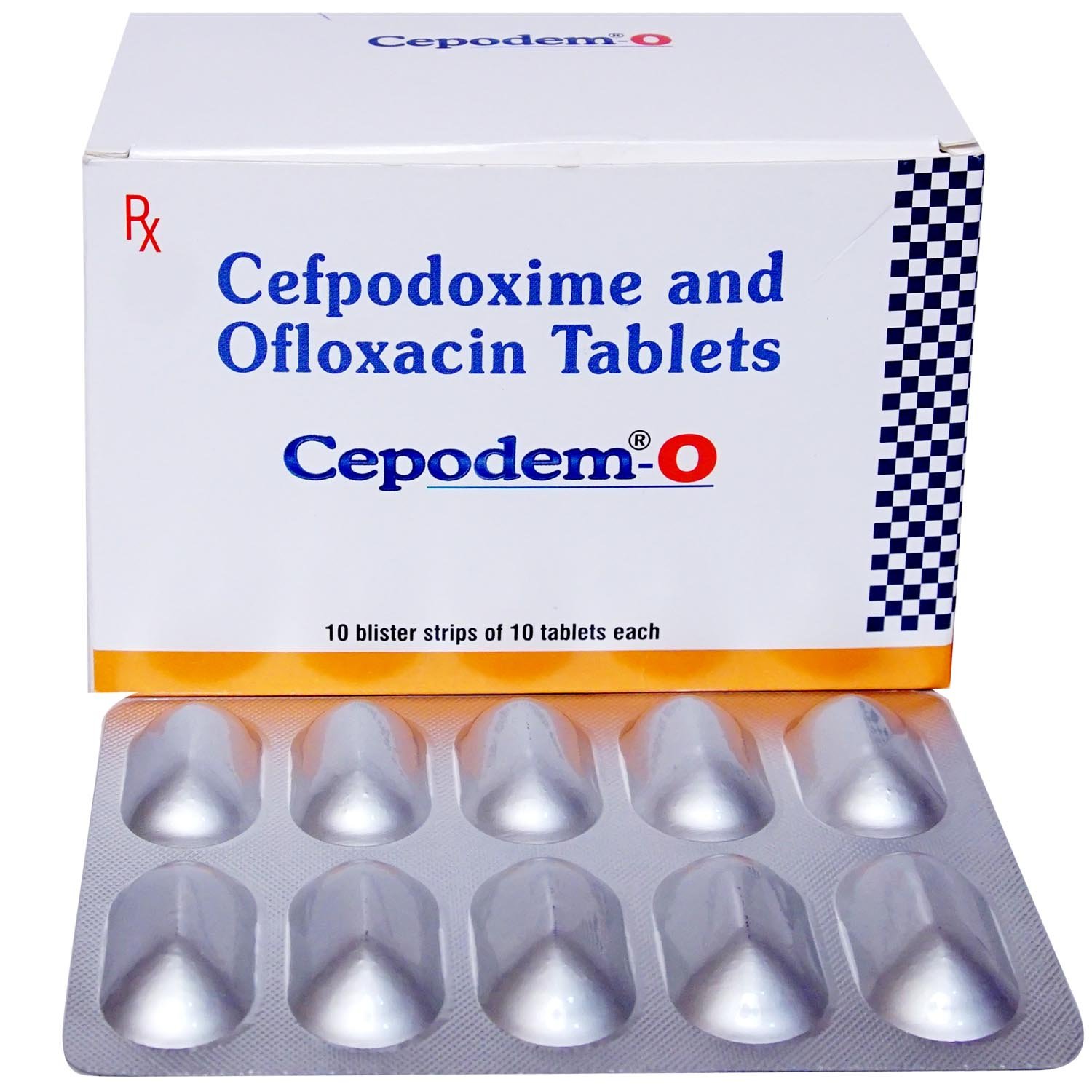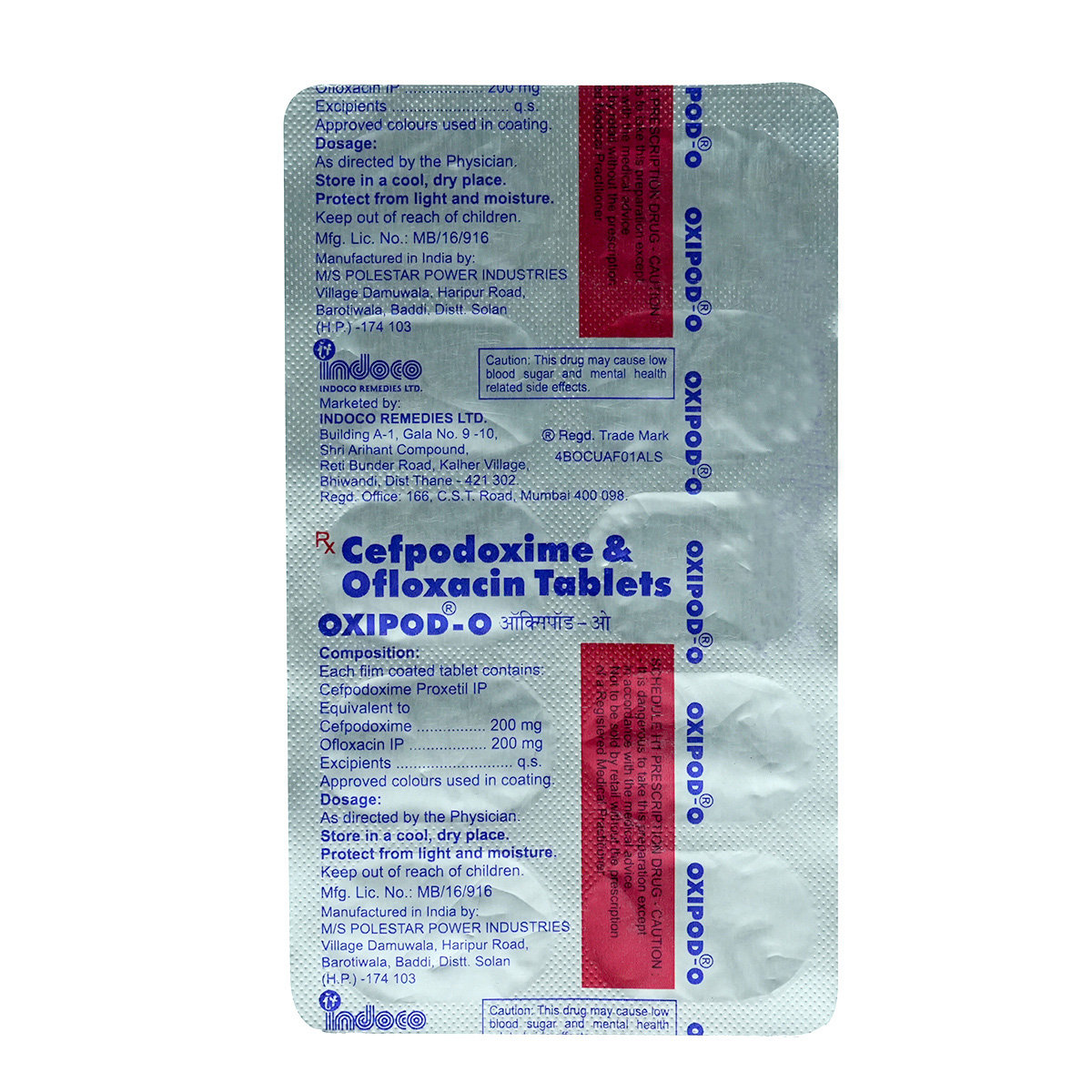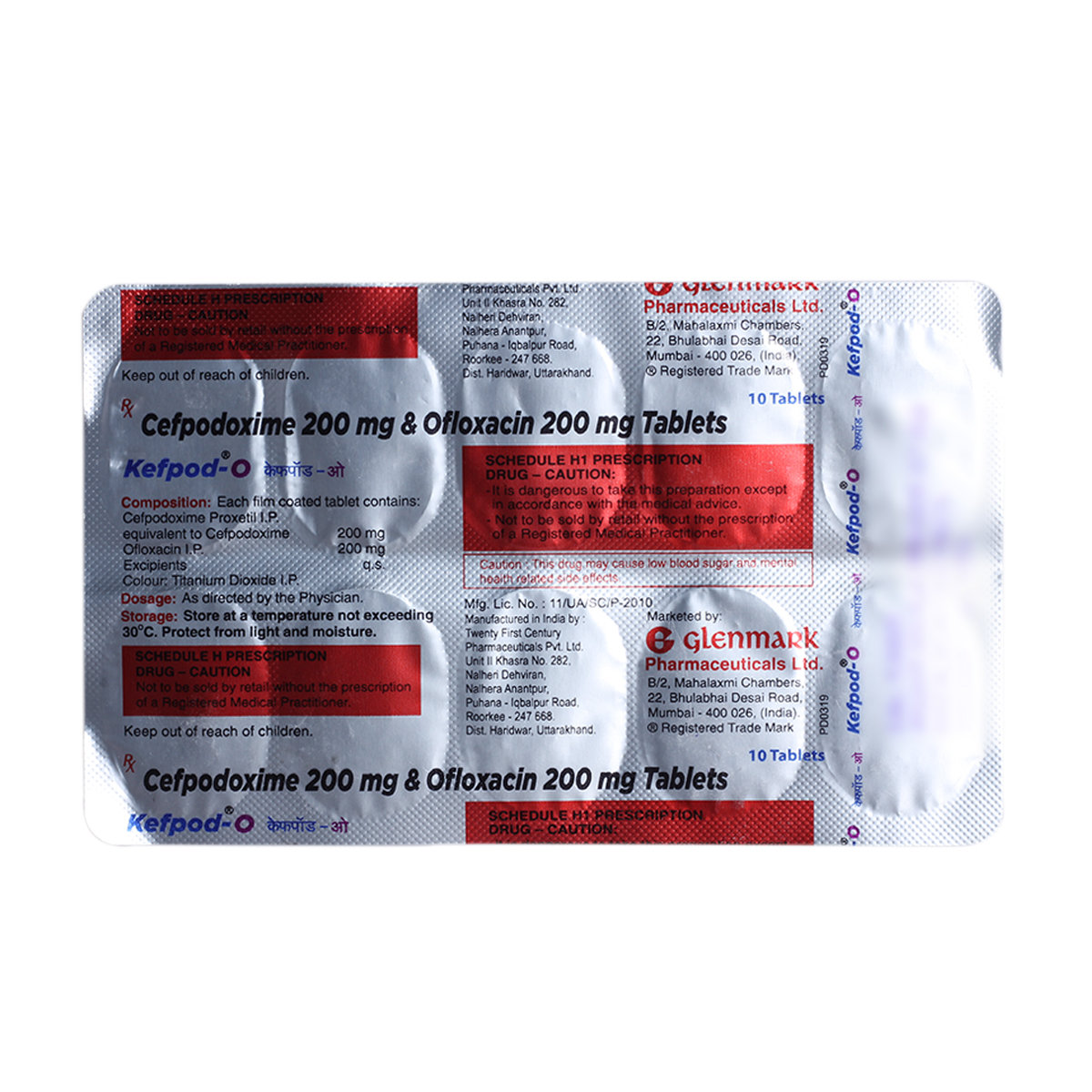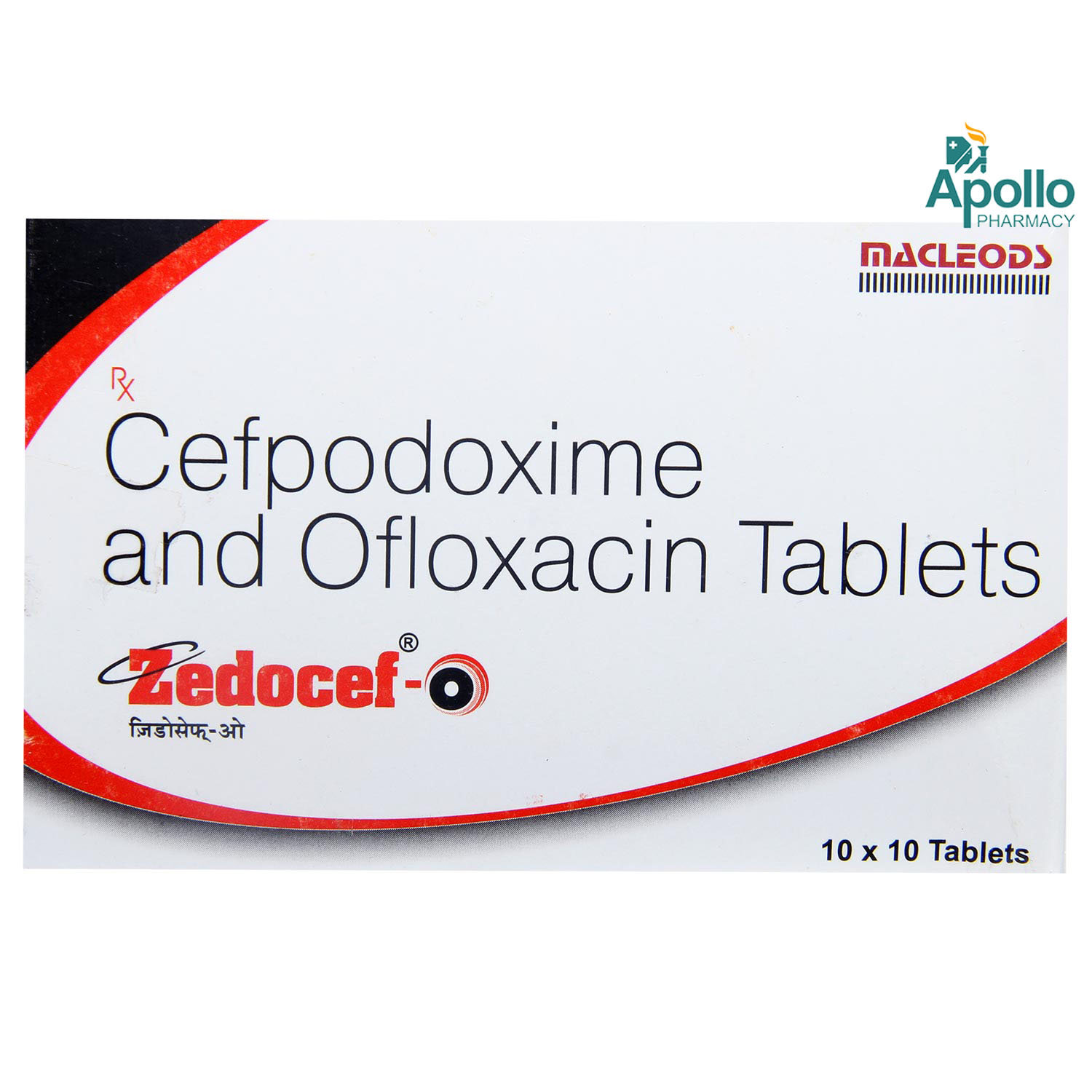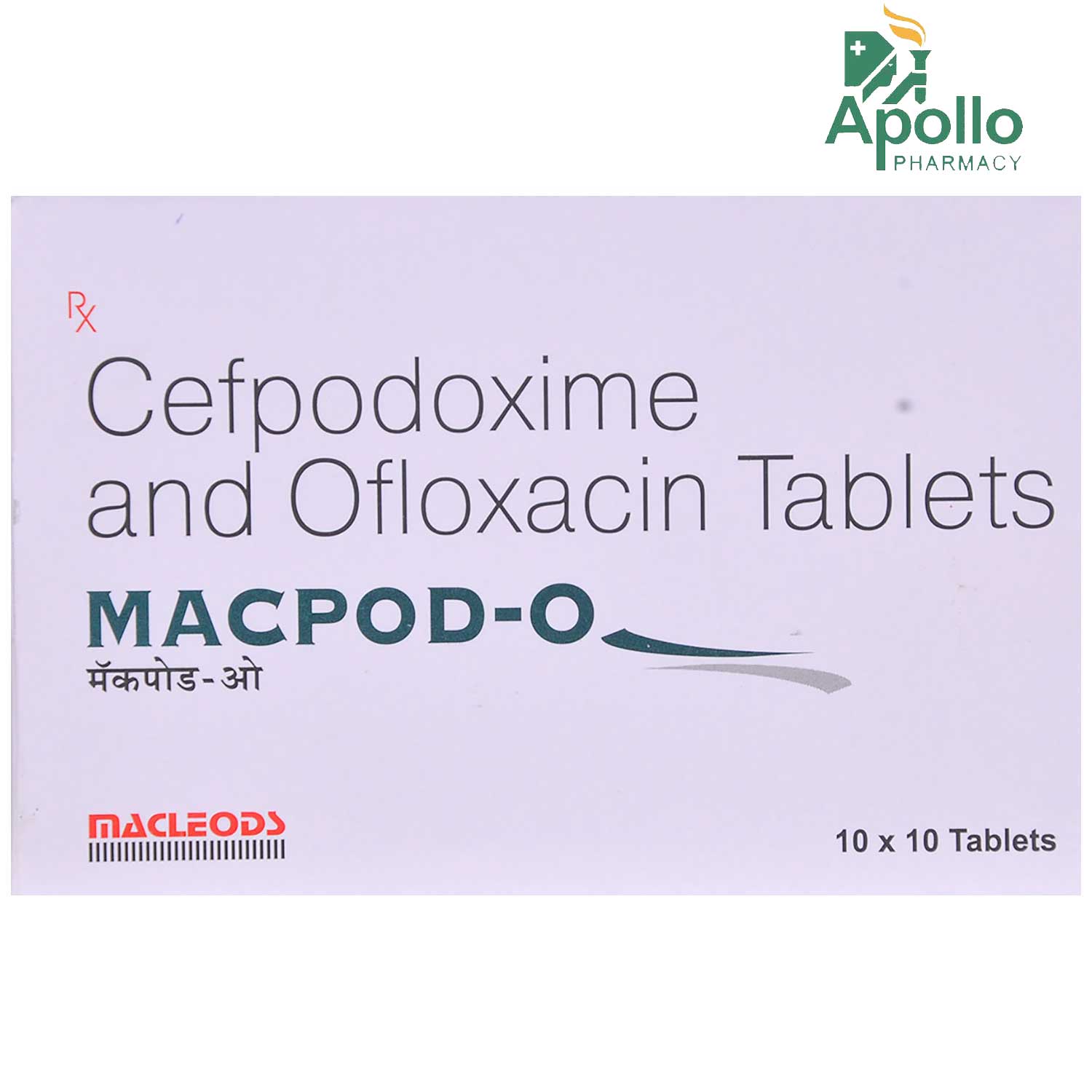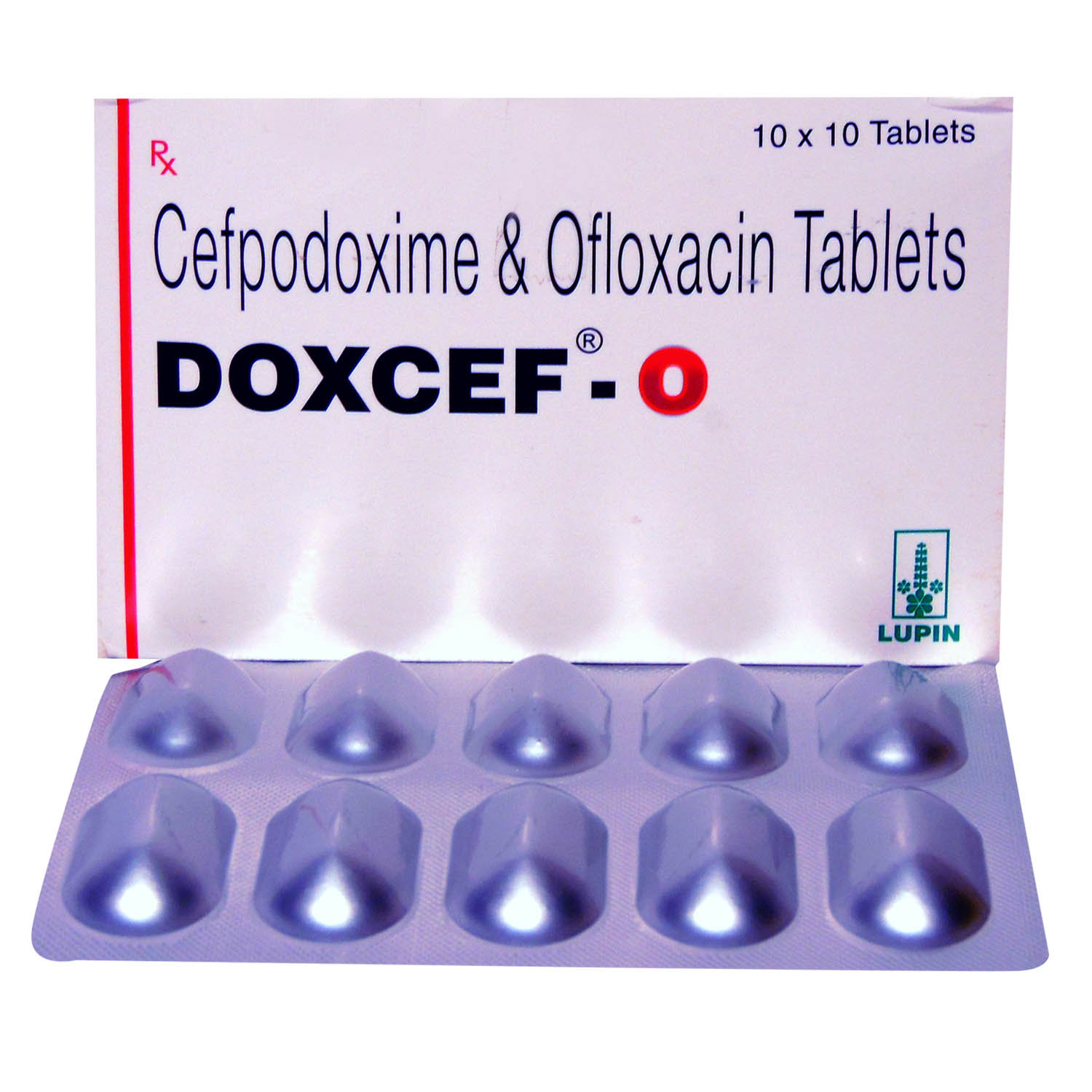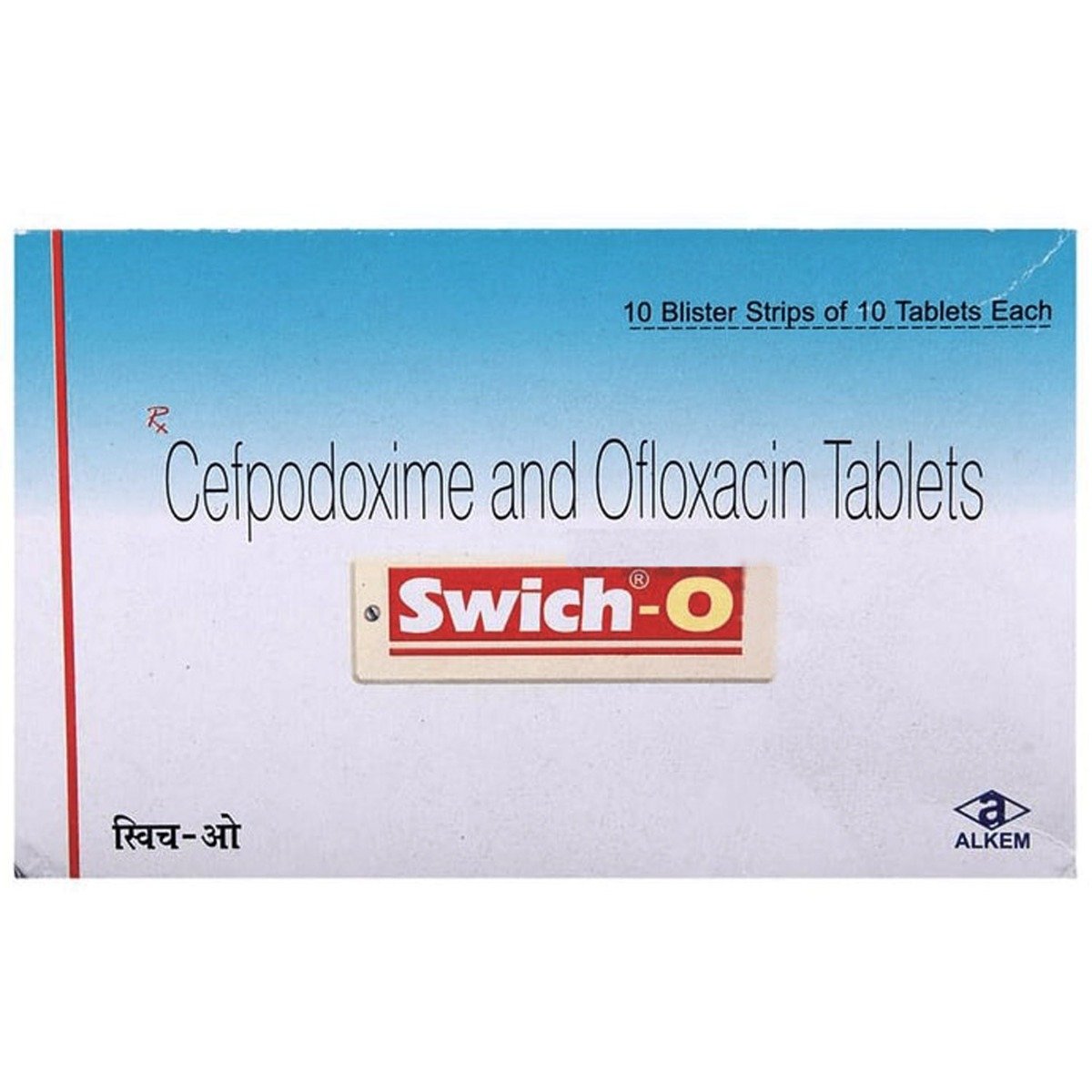Microcef-O Tablet 10's
MRP ₹213.5
(Inclusive of all Taxes)
₹32.0 Cashback (15%)
Provide Delivery Location
Online payment accepted
 Prescription drug
Prescription drugWhats That
Composition :
Manufacturer/Marketer :
Consume Type :
Expires on or after :
Return Policy :
About Microcef-O Tablet
Microcef-O Tablet belongs to the group of medicines called broad-spectrum antibiotic, which is used to treat bacterial infections of the lungs (pneumonia), sinus (sinusitis), bladder (cystitis), ear infections, etc. Bacterial infections are caused due to the multiplication of harmful bacteria inside or on the body. Microcef-O Tablet does not work against infections caused by the virus, including cold and flu. Using antibiotics when it isn't required can make it not work (develop antibiotic resistance) for future contaminations.
Microcef-O Tablet is a combination of two antibiotic drugs, namely: Ofloxacin and Cefpodoxime. Ofloxacin inhibits DNA gyrase which is required for the replication, transcription and repair of the DNA. Cefpodoxime works by preventing the formation of bacterial cell covering (cell wall), which is necessary for their survival. Thereby, it kills the bacteria (bactericidal) and helps treat and prevent the spread of bacterial infections. Together, Microcef-O Tablet helps in treating bacterial infections.
Take Microcef-O Tablet with or without food. The dose and duration of Microcef-O Tablet can vary depending upon your condition and the severity of the infection. Also, it is recommended to complete the course of medicine even if you feel better as Microcef-O Tablet contains antibiotics, and leaving it in between may lead to even severe infection that will , in fact, stop responding to the antibiotic as well (antibiotic resistance). In some cases, you may experience certain common side-effects such as dizziness, pain in the lower legs, neck pain, stomach pain and headache. Most of these side-effects do not require medical attention and will resolve gradually over time. However, you are advised to talk to your doctor if you experience these side-effects persistently.
Before starting Microcef-O Tablet , please inform your doctor if you have any allergy (against any antibiotic), kidney or liver problems. Do not take Microcef-O Tablet on your own as self-medication may lead to antibiotic-resistance in which antibiotics fail to act against specific bacterial infections. Consult your doctor before taking Microcef-O Tablet if you are pregnant or breastfeeding. Avoid alcohol consumption while taking Microcef-O Tablet as it may cause increased dizziness. Microcef-O Tablet is not recommended for use in children.
Uses of Microcef-O Tablet
Directions for Use
Key Benefits
Microcef-O Tablet belongs to the group of medicines called antibiotics, which iare used to treat bacterial infections like urinary tract infections, respiratory tract infections, sexually transmitted infections, soft tissue infection, ear and eye infections. Microcef-O Tablet is a combination of two antibiotic drugs, namely: Ofloxacin and Cefpodoxime. Ofloxacin inhibits DNA gyrase which is required for the replication, transcription and repair of the DNA. Cefpodoxime inhibits protein synthesis and leads to cell death, thereby kills the bacteria. Together, Microcef-O Tablet helps in treating bacterial infections. Microcef-O Tablet is a broad-spectrum antibiotic effective against a wide range of gram-positive and gram-negative bacteria.
Storage
- Rash caused by allergies is due to irritants or allergens. Therefore, avoid contact with such irritants.
- Consult your doctor for proper medication and apply an anti-itch medication. Follow the schedule and use the medication whenever needed.
- Protect your skin from extreme heat and try to apply wet compresses.
- Soak in the cool bath, which gives a soothing impact to the affected area.
- Drink water or other clear fluids.
- To prevent worsening of pain, limit intake of tea, coffee, or alcohol.
- Include bland foods like rice, toast, crackers, and rice in your diet.
- Avoid lying down immediately after eating as it may cause indigestion or heartburn.
- Avoid acidic and spicy food as it may cause indigestion.
- Inform your doctor about dry mouth symptoms. They may adjust your medication regimen or prescribe additional medications to manage symptoms.
- Drink plenty of water throughout the day to help keep your mouth moist and alleviate dry mouth symptoms.
- Chew sugar-free gum or candies to increase saliva production and keep your mouth moisturized.
- Use saliva substitutes, such as mouthwashes or sprays, only if your doctor advises them to help moisturize your mouth and alleviate dry mouth symptoms.
- Avoid consuming smoking, alcohol, spicy or acidic foods, and other irritants that may aggravate dry mouth symptoms.
- Schedule regular dental check-ups to keep track of your oral health and handle any dry mouth issues as they arise.
- Wear cotton underwear and loose pants to facilitate better airflow.
- Try meditation and yoga to reduce stress and improve balance hormones.
- Eat foods like yogurt or kefir to support vaginal health.
- Gently clean the genital area with soap and lukewarm water.
- Avoid fragrant soap, bubble baths, and douches; these can also irritate.
- Tell your doctor about any medications or supplements you’re taking, as they may affect vaginal discharge treatments.
- Inform your doctor about your constipation symptoms. They may adjust your medication or advise alternative treatments.
- Stay hydrated by drinking sufficient of water (at least 8-10 glasses a day) to help soften stool and promote bowel movements.
- Increase fibre intake by eating foods high in fibre, such as fruits, whole grains, vegetables and legumes, to help bulk up the stool.
- Establish a bowel routine by trying to go to the bathroom at the same time each day to train your bowels.
- Engaging in regular exercise, like walking or yoga, can support in bowel movement stimulation.
- Consult your doctor if constipation persists, and discuss alternative treatments or adjustments to your medication.
- Inform Your Doctor: Notify your doctor immediately about your diarrhoea symptoms. This allows them to adjust your medication or provide guidance on managing side effects.
- Stay Hydrated: Drink plenty of fluids to replace lost water and electrolytes. Choose water, clear broth, and electrolyte-rich drinks. Avoid carbonated or caffeinated beverages to effectively rehydrate your body.
- Follow a Bland Diet: Eat easy-to-digest foods to help firm up your stool and settle your stomach. Try incorporating bananas, rice, applesauce, toast, plain crackers, and boiled vegetables into your diet.
- Avoid Trigger Foods: Steer clear of foods that can worsen diarrhoea, such as spicy, fatty, or greasy foods, high-fibre foods, and dairy products (especially if you're lactose intolerant).
- Practice Good Hygiene: Maintain good hygiene to prevent the spread of infection. To stay healthy, wash your hands frequently, clean and disinfect surfaces regularly, and avoid exchanging personal belongings with others.
- Take Anti-Diarrheal Medications: If your doctor advises, anti-diarrheal medications such as loperamide might help manage diarrhoea symptoms. Always follow your doctor's directions.
- Keep track of your diarrhoea symptoms. If they don't get better or worse or are accompanied by severe stomach pain, blood, or dehydration signs (like extreme thirst or dark urine), seek medical help.
Drug Warnings
Do not take Microcef-O Tablet if you are allergic to any of its contents. Do not take Microcef-O Tablet if you have epilepsy or kidney problems. Maintain a minimum gap of two hours between Microcef-O Tablet and antacid, vitamin and mineral medicines. Consult your doctor before taking Microcef-O Tablet if you are pregnant or breastfeeding. Avoid alcohol consumption while taking Microcef-O Tablet as it causes increased dizziness. Microcef-O Tablet is not recommended for use in children.
Drug-Drug Interactions
Drug-Drug Interactions
Login/Sign Up
Using Mesoridazine together with Microcef-O Tablet can increase the risk of an irregular heart rhythm that may be serious.
How to manage the interaction:
Taking Mesoridazine with Microcef-O Tablet is not recommended, please consult your doctor before taking it. You should seek immediate medical attention if you develop sudden dizziness, lightheadedness, fainting, shortness of breath, or heart palpitations. Do not stop using any medications without talking to a doctor.
Coadministration of Microcef-O Tablet with Quinidine can increase the risk or severity of irregular heart rhythms.
How to manage the interaction:
Taking Microcef-O Tablet with Quinidine together is generally avoided as it can result in an interaction, it can be taken if your doctor has advised it. However, if you experience sudden dizziness, lightheadedness, fainting, shortness of breath, chest pain or tightness, rapid heartbeat, or memory loss, contact a doctor immediately. Do not discontinue any medications without consulting a doctor.
Coadministration of Microcef-O Tablet with Pimozide can increase the risk or severity of irregular heart rhythms.
How to manage the interaction:
Taking Microcef-O Tablet with Pimozide together can result in an interaction, it can be taken if your doctor has advised it. However, if you experience sudden dizziness, lightheadedness, fainting, shortness of breath, chest pain or tightness, rapid heartbeat, or memory loss, contact a doctor immediately. Do not discontinue any medications without consulting a doctor.
Coadministration of Microcef-O Tablet with Saquinavir can increase the risk or severity of irregular heart rhythms.
How to manage the interaction:
Taking Microcef-O Tablet with Saquinavir together is generally avoided as it can result in an interaction, it can be taken if your doctor has advised it. However, if you experience sudden dizziness, lightheadedness, fainting, shortness of breath, chest pain or tightness, rapid heartbeat, or memory loss, contact a doctor immediately. Do not discontinue any medications without consulting a doctor.
Using bepridil together with Microcef-O Tablet drugs can increase the risk of an irregular heart rhythm that may be serious.
How to manage the interaction:
Taking Microcef-O Tablet with Bepridil can cause an interaction, please consult your doctor before taking it. You should seek immediate medical attention if you develop sudden dizziness, lightheadedness, fainting, or fast or pounding heartbeats. Do not stop using any medications without consulting a doctor.
Coadministration of Microcef-O Tablet with Dronedarone can increase the risk or severity of irregular heart rhythm.
How to manage the interaction:
Taking Microcef-O Tablet with Dronedarone together can result in an interaction, it can be taken if your doctor has advised it. However, if you experience sudden dizziness, lightheadedness, fainting, shortness of breath, chest pain or tightness, rapid heartbeat, or memory loss, contact a doctor immediately. Do not discontinue any medications without consulting a doctor.
Using halofantrine together with Microcef-O Tablet can increase the risk of an irregular heart rhythm that may be serious.
How to manage the interaction:
Taking Microcef-O Tablet with Halofantrine can cause an interaction, please consult your doctor before taking it. You should seek immediate medical attention if you develop sudden dizziness, lightheadedness, fainting, shortness of breath, or heart palpitations. Do not stop using any medications without talking to a doctor.
The combination of Amiodarone and Microcef-O Tablet may significantly increase the risk of an abnormal heart rhythm.
How to manage the interaction:
Although Amiodarone and Microcef-O Tablet interact, it can be taken if prescribed by a doctor. If you get dizziness, lightheadedness, fainting, or fast or racing heartbeats, consult a doctor. Do not stop taking any medications without consulting a doctor.
Coadministration of Microcef-O Tablet with Thioridazine can increase the risk or severity of irregular heart rhythms.
How to manage the interaction:
Taking Microcef-O Tablet with Thioridazine together is generally avoided as it can result in an interaction, it can be taken if your doctor has advised it. However, if you experience sudden dizziness, lightheadedness, fainting, shortness of breath, chest pain or tightness, rapid heartbeat, or memory loss, contact a doctor immediately. Do not discontinue any medications without consulting a doctor.
Coadministration of Microcef-O Tablet with Sotalol can increase the risk or severity of irregular heart rhythms.
How to manage the interaction:
Taking Microcef-O Tablet with Sotalol together is generally avoided as it can result in an interaction, it can be taken if a doctor has advised it. If you experience sudden dizziness, lightheadedness, fainting, shortness of breath, chest pain or tightness, rapid heartbeat, or memory loss, contact a doctor. Do not discontinue any medications without consulting a doctor.
Drug-Food Interactions
Drug-Food Interactions
Login/Sign Up
Diet & Lifestyle Advise
- Eat fibre rich food like whole grains, beans, lentils, berries, broccoli, peas and bananas.
- Avoid foods rich in calcium, grapefruit and grapefruit juice as they might hinder the absorption of antibiotics.
- Avoid consumption of alcohol to treat your condition effectively.
- Avoid usage of tobacco.
- Avoid the intake of dairy products.
Side Effects of Microcef-O Tablet
- Dizziness
- Pain in lower legs
- Loss of appetite
- Neck pain
- Headache
- Stomach Pain
Habit Forming
Therapeutic Class
All Substitutes & Brand Comparisons
RX
Out of StockNot for online saleDOXOPOD O TABLET
Intra Labs India Pvt Ltd
₹38.5
(₹3.47 per unit)
81% CHEAPERRX
Not for online saleCepofit O Tablet 10's
Orsim Pharma
₹200
(₹17.6 per unit)
8% CHEAPERRX
Out of StockNot for online saleAzepod-O 200 mg/200 mg Tablet 6's
Azmed Healthcare
₹126
(₹18.9 per unit)
1% CHEAPER
Drug-Diseases Interactions
Drug-Diseases Interactions
Login/Sign Up
FAQs
Drug-Drug Interactions Checker List
- ASPIRIN
- FUROSEMIDE
- ALBUTEROL
Special Advise
- Microcef-O Tablet may affect coagulation test or prothrombin time (time is taken for blood clotting), liver function tests and serum tests. Inform the person doing the tests that you are taking Microcef-O Tablet .
- Diabetes patients who take blood tests should inform their doctor about your use of Microcef-O Tablet .
- May cause live bacterial vaccines (such as typhoid vaccine) to not work as well. Do not have any immunizations/vaccinations while using this medication unless your doctor tells you to.
- Microcef-O Tablet contains ofloxacin which might produce false-positive urine screening results for opiates. Inform the person doing the tests that you are taking Microcef-O Tablet .
Disease/Condition Glossary
Bacterial infections: A bacterial infection is a condition in which harmful bacteria enter, multiply and infect our body. Infectious or harmful bacteria can make you sick and reproduce quickly in your body. These harmful bacteria produce chemicals known as toxins, which can damage tissue and make you sick. It can target any body part and multiply very quickly. When you get infected with bacteria, you can experience generalized symptoms like fevers, chills, and fatigue. Bacteria are of various forms comprising commonly of spherical, rod, and spiral-shaped. Bacterial infections vary from minor illnesses like sore throat and ear infections to severe brain infections like meningitis and encephalitis. Anyone can become infected with a bacterial infection. But, people with weak immune systems or taking immunosuppressive medicine are more prone to bacterial infection.

Have a query?
Alcohol
Safe if prescribed
Avoid consuming alcohol while taking Microcef-O Tablet as it may cause increased dizziness.
Pregnancy
Consult your doctor
Please consult your doctor if you are pregnant, your doctor will prescribe Microcef-O Tablet only if the benefits outweigh the risks.
Breast Feeding
Consult your doctor
It is unknown if Microcef-O Tablet passes into breastmilk. Consult your doctor before taking Microcef-O Tablet if you are breastfeeding.
Driving
Safe if prescribed
Microcef-O Tablet may cause dizziness and vision problems. So, drive only if you are alert.
Liver
Consult your doctor
Dose adjustment may be needed. Please consult your doctor before taking Microcef-O Tablet if you have liver impairment/liver disease.
Kidney
Consult your doctor
Dose adjustment may be needed. Please consult your doctor if you have any concerns regarding this or kidney impairment/kidney disease before taking Microcef-O Tablet .
Children
Safe if prescribed
Microcef-O Tablet should not be given to children below 18 years.

